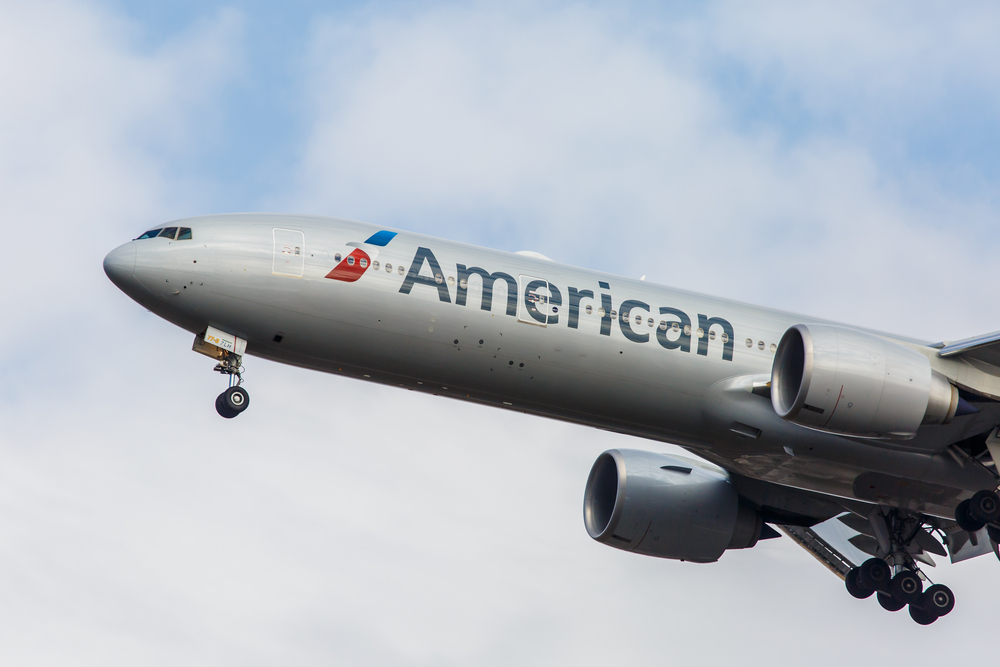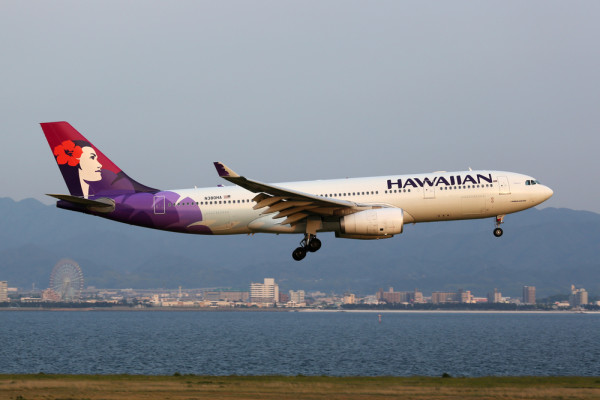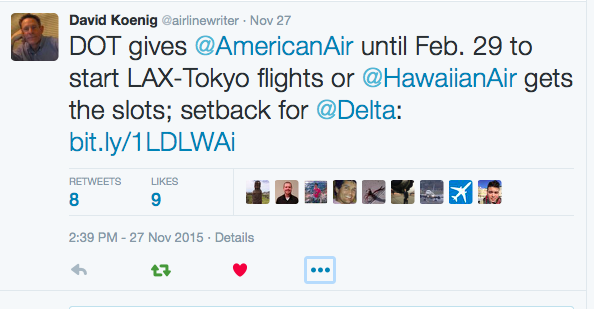DOT Sends Delta To The Back of The Line Again On Haneda

There have been a whole bunch of chapters in the saga to find a home for the last non-operating frequency between the US and Tokyo’s Haneda airport. Delta had the slot for a while and was operating the bare minimum of service from Seattle to keep the slot. American Airlines lobbied for the slot, badgering the DOT about it until Delta finally gave the slot up.
Delta waited until the exact day when American was supposed to launch service and poked American back, petitioning the DOT to take the slot back from American. It was an interesting tactic. A bit snarky, given the complications to set up such a route, but well within their rights. I would have been curious to see how the DOT would have ruled on that if American had not announced a firm date to launch service. Instead, American asked the DOT for an extension and announced service a month ago to begin in mid-February 2016.
I saw a tweet on Friday from AP reporter David Koenig (HT: Seth) stating that the DOT had ruled on the multiple motions in front of them on the Haneda slot.
The link in the tweet is to the actual motion. I gave it a quick scan and was a little surprised to see that the DOT had essentially told Delta to pound sand. Quoting from the motion:
By this Order, the Department (1) approves the request of American Airlines, Inc. (American) for an extension of the startup date applicable to its authority to provide service between Los Angeles, California, and Tokyo’s Haneda Airport; and (2) dismisses the motion of Delta Air Lines, Inc. (Delta) requesting that the Department revoke American’s U.S.-Haneda authority. The Department has also decided to award backup authority to Hawaiian Airlines, Inc. (Hawaiian) for its proposed Kona-Haneda services, should American not meet the conditions and requirements attached to its Los Angeles-Haneda slot pair authority.
Interestingly, it wasn’t just Delta objecting to Hawaiian’s request for backup authority. United did as well, saying:
United asserts that Hawaiian’s request is outside the scope of the instant proceeding, which stems from American’s need to seek a startup extension. United also asserts that Hawaiian’s request is unprecedented in its breadth, as the Department has historically not awarded backup authority to primary U.S.-Haneda slot pair awards, and on the only occasion the Department did award backup authority, it tied that backup authority to a specific primary award. United argues that Hawaiian has not presented any justification to deviate from that precedent.

Despite this and other objections, the DOT found that the Hawaiian proposal was in the public’s best interest if American could not fulfill the promise to operate the route. They did put one small caveat on the backup award to Hawaiian:
The Department has decided to impose a startup condition on the backup award, and will require Hawaiian to institute its proposed service within 90 days of the activation of its backup award. Should the backup award be activated, the allocation of the slot pair to Hawaiian would remain in effect indefinitely, subject to the Department’s standard 90-day dormancy condition.
The Hawaiian proposed route is roughly 1,500 miles shorter than the LAX-HND route. That could make scheduling a bit easier with more tolerable arrival/departure times. That being said, there’s quite a bit of competition on flights from Tokyo to Hawaii, though current flights land in Honolulu, not Kona.
I still think that American is in the Haneda game for the long haul, even if the flight loses money. They’re weaker in Asia and this is a chance to grow. Record profits allow them to hemorrhage cash on this route to some degree for the foreseeable future. I’ll be interested to see if they can make Haneda work.
In the interim, Delta is left on the outside looking in, though that may be where they want to be. At any rate, it appears they’ll have to wait for both American and Hawaiian to fail on Haneda before they get another shot.

